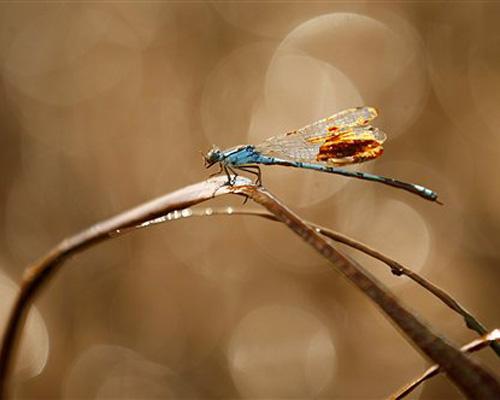Not Yet
 By Linda Hooper-Bui, 225 - Nearly a year ago, we were driving home from a Florida vacation when my husband and I explained the Macondo well gushing in the Gulf to our three-year-old. Feeling helpless, fearing for the ecosystem and not knowing exactly what to say to our precocious daughter, we told her the simple truth.
By Linda Hooper-Bui, 225 - Nearly a year ago, we were driving home from a Florida vacation when my husband and I explained the Macondo well gushing in the Gulf to our three-year-old. Feeling helpless, fearing for the ecosystem and not knowing exactly what to say to our precocious daughter, we told her the simple truth.
“Some people made a mistake, and oil is escaping into the Gulf. Mommy is very sad. Mommy and her students have to do lot of work to study the effects of oil on the marsh.”

A small crab skitters helplessly across the oily surface in June, two months after oil started gushing.
She thought for a few seconds and replied firmly, “Oil is not good for birds, fish and other animals!”
It’s so easy; a three-year-old understood the gravity even as the situation was still unfolding.
My daughter has come to me through the year to express her sadness about the oil in the Gulf and her concern for the animals. I try to reassure her, but at the same time, I don’t want to lie. We’ve been told, “It’s going to be okay,” by BP, prominent scientists, media and pundits. We still don’t know the outcome of this technological disaster. Scientists say, “We’ve dodged a bullet.”
Me? I’m not so sure. I’m an ecologist who studies insects—those that serve as food for frogs, fish and birds. I’m still examining the data. My preliminary findings indicate that I can’t yet tell my child it’s going to be okay.

In February, the Marine Well Containment Co. of Houston released this overhauled well cap which includes new safeguards. A blowout preventer failed, which led to the accident.
I struggle with the right words and waffle over how much to tell her when she asks. I haven’t told her how I’ve wanted to cry when I see the edges of the beautiful, stinky marshes blackened with oil. Nor have I related stories of those same edges falling into the Gulf or how land-loss has likely been accelerated. She doesn’t know I’m worried about my friends who live on the Gulf and depend on it for their livelihoods. Too many of them are sick, and few are taking their claims seriously.
Recently, she ran up to me and said, “Mommy, I’m worried about the dragonflies in the Gulf.”
I took her in my arms, hugged her and said, “Me too.”
She was silent for a while then changed the subject. I haven’t told her about the buzzing grasshoppers that eat the sharp tips of the marsh grass. They are missing from many areas adjacent to oiled edges. I don’t burden her with the species loss I’ve measured: bees, flies, spiders and seed bugs. Nor do I wonder aloud if and when these creatures and all that depend on them for food will return.
What she does know is that Mommy is spending time working on grants—three times the number I normally write. I’m fortunate; many are funded. She knows that Mommy goes to the marsh and comes home muddy, stinky and very satisfied with her work as an independent scientist.
Someday, I hope to take her to the marsh and regale her with a story about how the marsh healed itself—but not yet.
Dragonfly Photo Credit: Gerald Herbert/AP
Dr. Hooper-Bùi is associate professor of entomology in LSU’s Department of Entomology, where she studies ants and other insects and spiders along the Gulf Coast.
